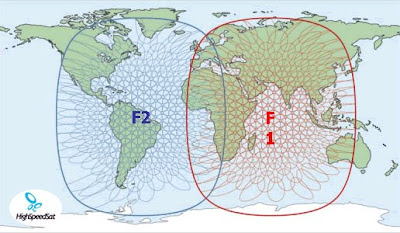Inmarsat warns of BGAN outages
Inmarsat has warned Asian users of its Broadband Global Area Network (BGAN) that they will lose some coverage over the next month as the operator repositions three satellites. The coverage gap for Asia will include much of China, most of southeast Asia, Western Australia, and all of Korea until the repositioning is completed tentatively by February 24.

The first phase of the repositioning is already underway, with the F2 satellite being relocated to better cover India and EMEA, Inmarsat's most heavily trafficked area. The repositioning move leaves a strip of the Atlantic Ocean and parts of the coasts of Africa, the UK and Greenland uncovered.
Once that phase is completed by February 7, the next phase will involve moving the F1 satellite to extend coverage in the Asia-Pacific, currently Inmarsat’s biggest BGAN customer base.
Inmarsat’s third I-4 satellite (I-4 F3), launched late last year, went into commercial service January 7, taking over BGAN traffic (including its new FleetBroadband and SwiftBroadband customers for maritime and aeronautical, respectively) from the I-4 F2 satellite. Because the first two I-4 birds were positioned to provide as much coverage as possible until the third satellite was ready, they must now be repositioned to optimize coverage over the land masses they serve and provide better look angles for the terminals.
No customer would completely lose service during the outage, and that everyone has been forewarned. Services for maritime and aeronautical customers will still be available via the I-3 satellites, although some BGAN users will have to drop down to the previous-generation GAN services. Inmarsat and distributors have been working with them, and the customer reaction has been positive because they all understand the net benefit of better service after the positioning is competed.
The customer base for services like FleetBroadband and SwiftBroadband, which leverage the I-4 satellites to enable broadband Internet services on ships and airplanes, is pretty small. Inmarsat launched those services about a year ago, and there is only about 1,500 FleetBroadband users globally. It means there’ll be very little impact for maritime users. Most of them have installed FleetBroadband gear alongside existing Inmarsat equipment. They have something naturally to fall back on. And most importantly it doesn’t impact safety services at all.
Labels: africa, atlantic ocean, BGAN outages, Broadband Global Area Network, FleetBroadband, Inmarsat, SwiftBroadband































